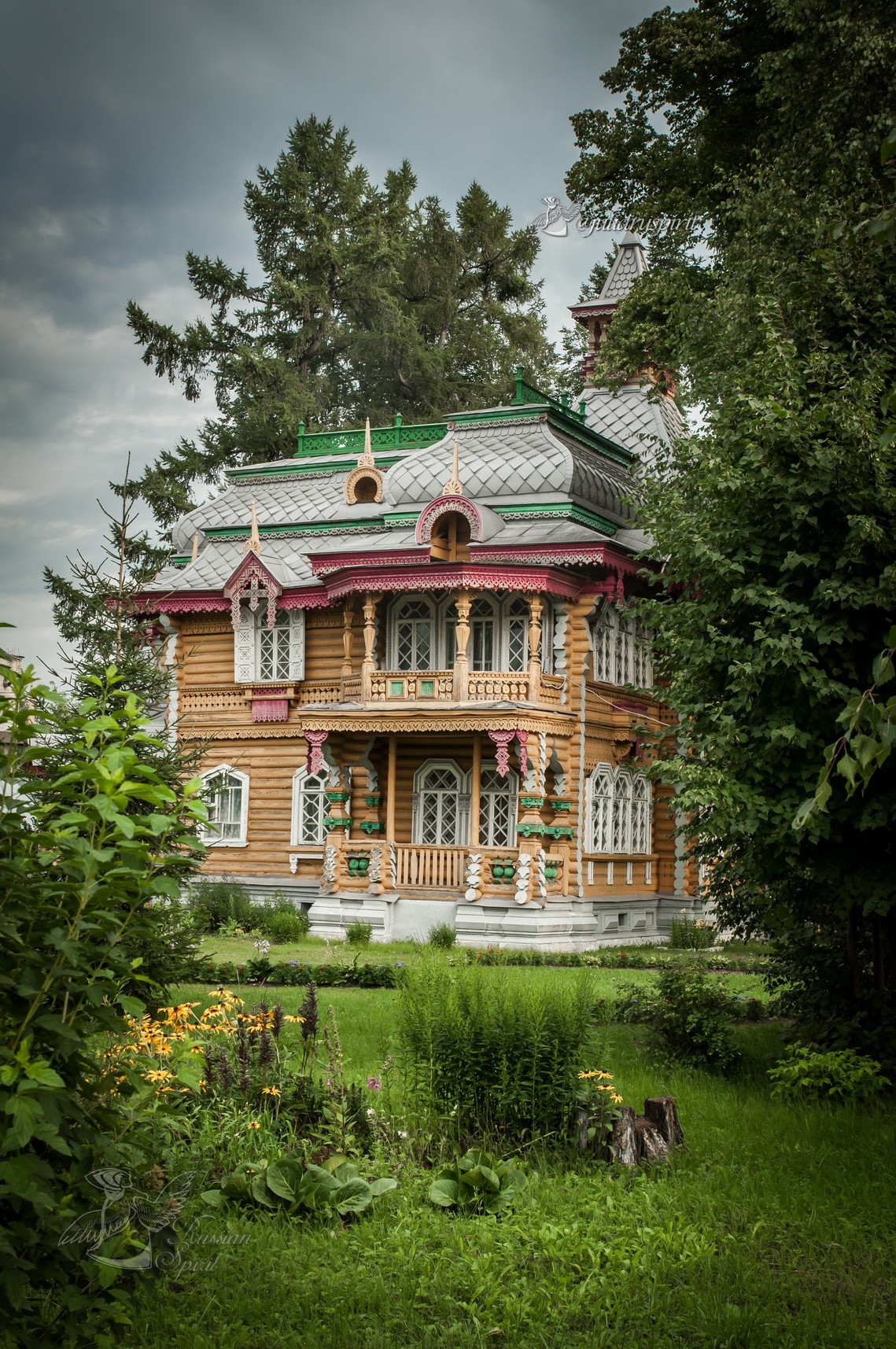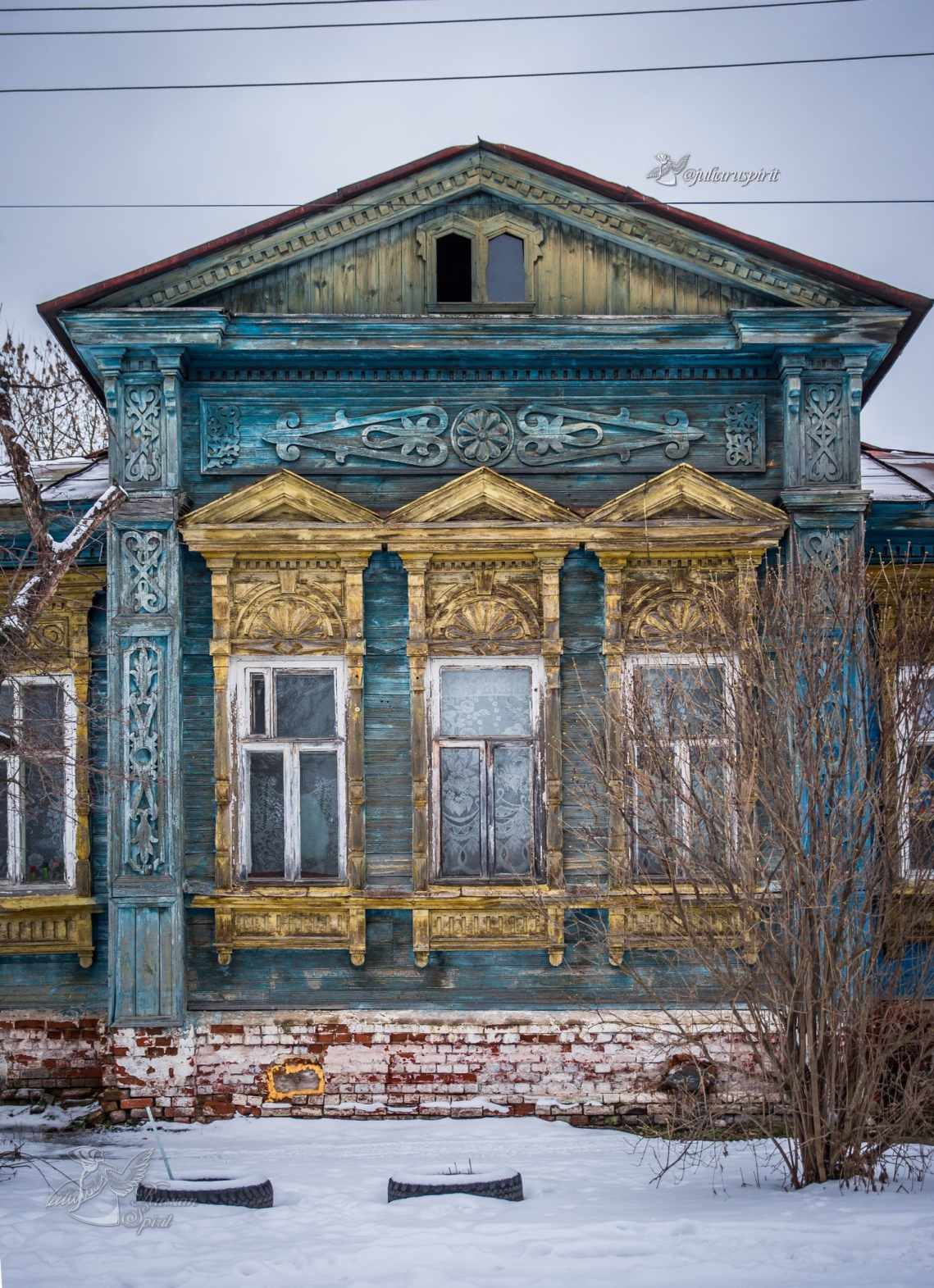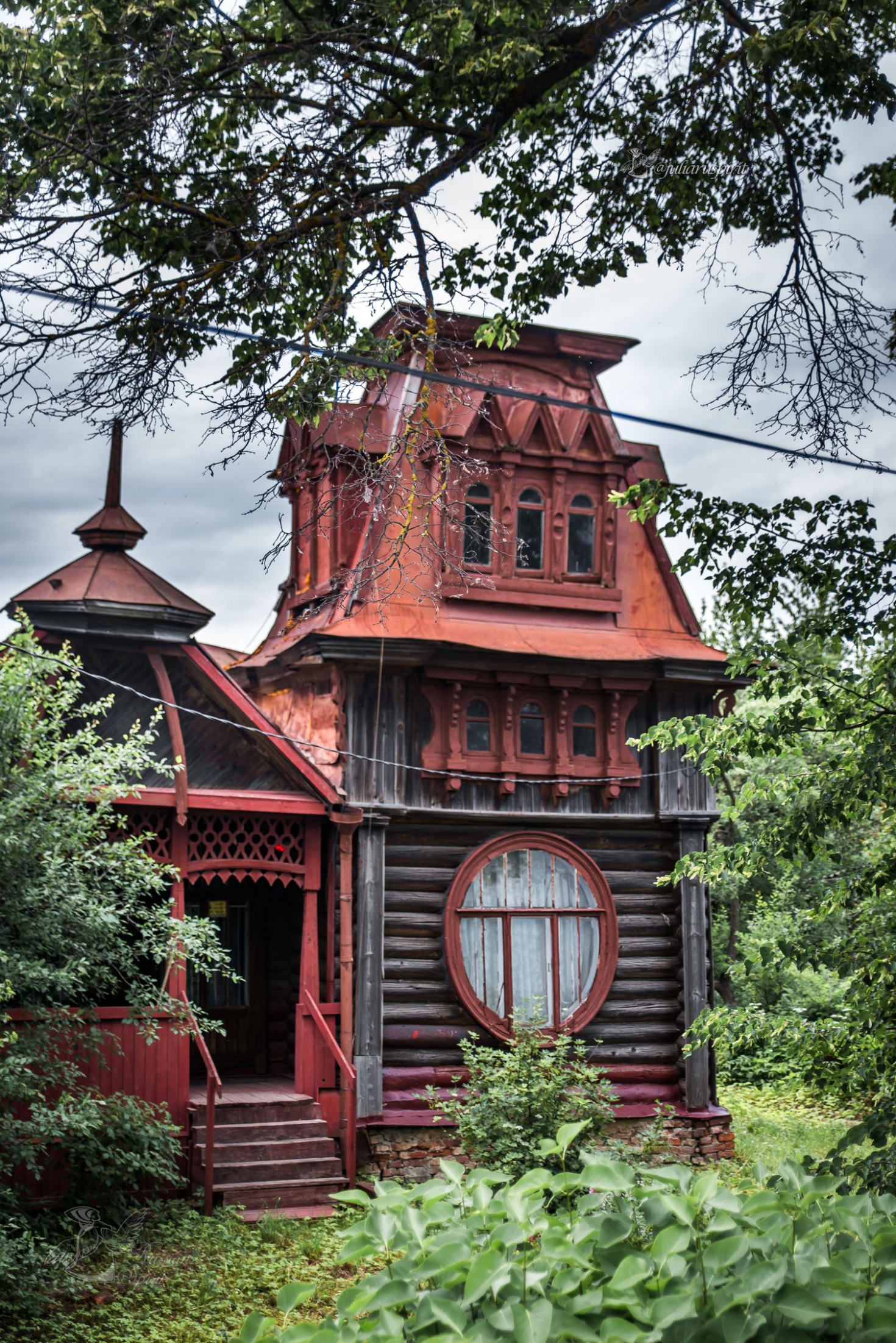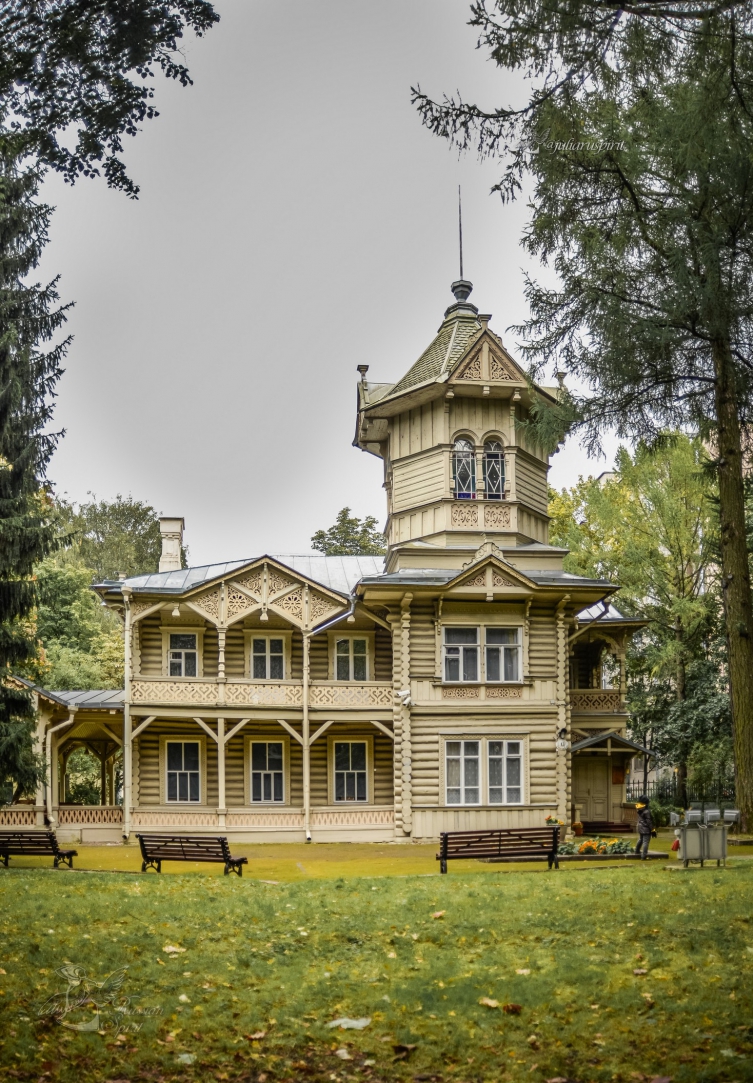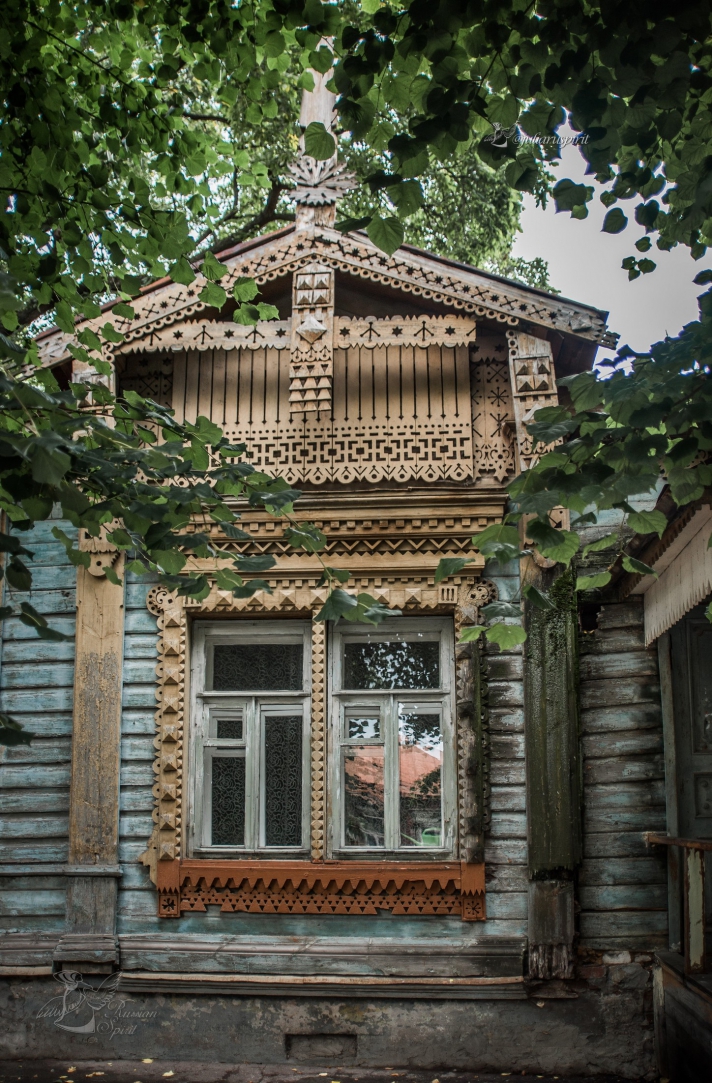Traveling around Russia and making photos for you of these houses richly decorated with carvings, stone buildings in the Russian style, country houses with skillful platbands, I have repeatedly wondered to myself: at what moment did the fashion for decorating houses so richly originate.
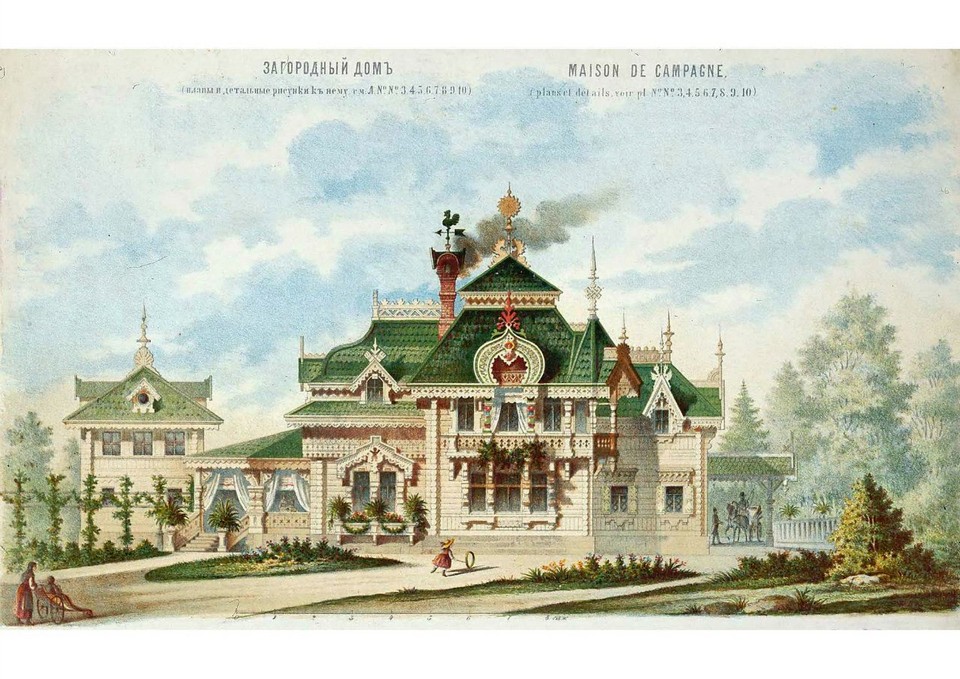
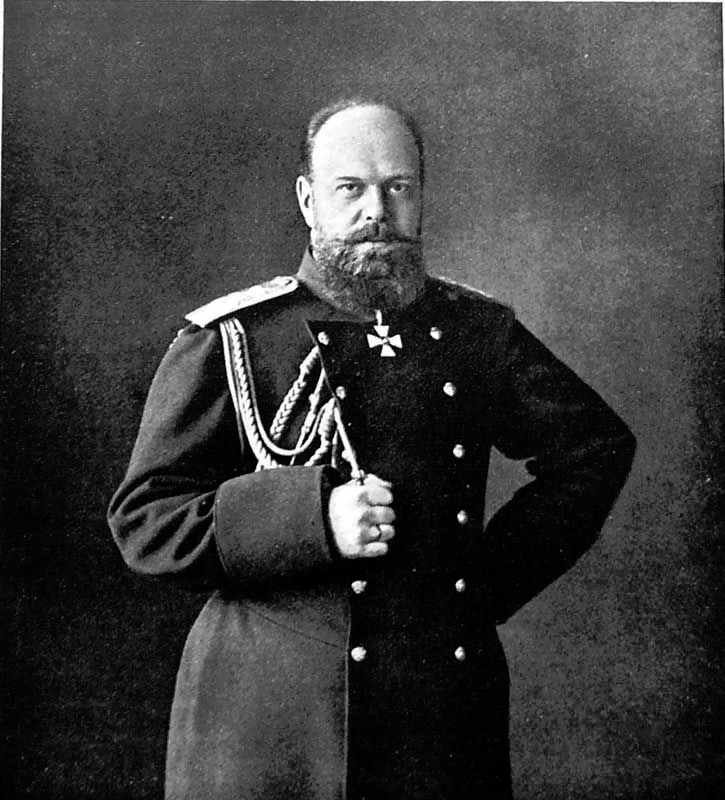 And in this matter, we will return to the years of the reign of Alexander III.
And in this matter, we will return to the years of the reign of Alexander III.
Unlike his predecessors, starting with Peter I, for whom Europe was an example of imitation, Alexander III actually became the first among Russian sovereigns who introduced fashion to the Russian. His style "a la rus" extended to everything: clothing, style of behavior, dance, music, food, hairstyles, beards, painting, architecture. Even the military uniform was changed under Alexander III, it outwardly resembled a Russian traditional coat zipun, was comfortable and practical.
The country received an autocrat, who felt comfortable in a Russian embroidered shirt and wore a beard - the first of the Russian emperors! By the way, in appearance he resembled a Russian epic hero, didn’t he?
The symbol of the era of Alexander III was the famous Church of the Savior on Spilled Blood in St. Petersburg, built according to Russian models of the 17th century. And, I must say, almost all the significant buildings of that time are sustained in the so-called neo-Russian style.
At the same time, skillful woodcarving in the form of Russian folk patterns also gained great popularity, a lot thanks to the architect Ivan Ropet. Even after his death, according to Ropet's sketches, merchants are building houses, some of which we can still see with our own eyes and in photos on social networks.
Now the old times seem to be repeating themselves: we are again trying to revive the Russian culture after the fashion for Europe and America. When, finally, will our society begin to value its own and not look back at other countries? But this is a rhetorical question

